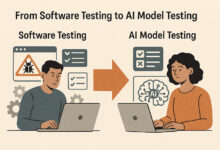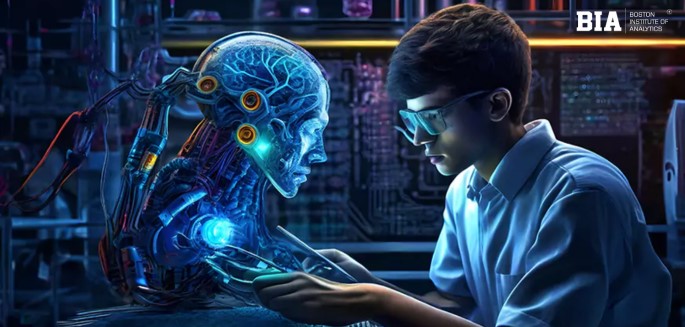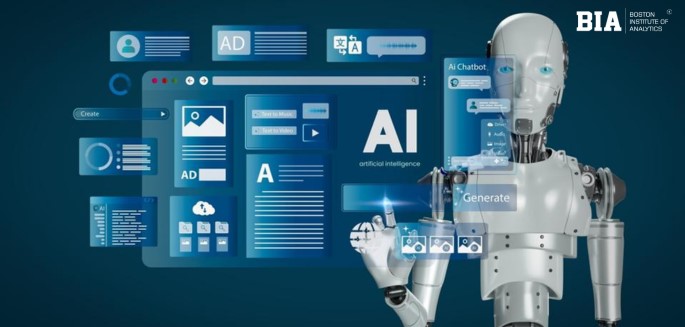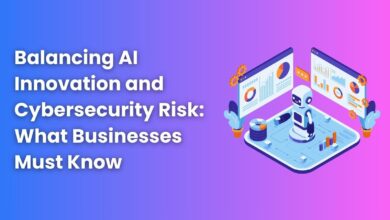The Role of Generative AI in Personalized Marketing Strategies
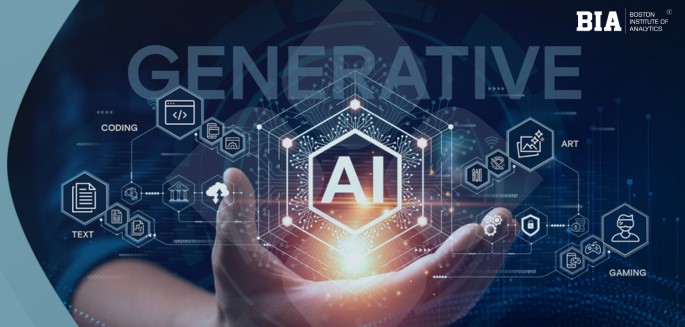
With today’s digital-first business world, personalized marketing is no longer an indulgence but a necessity. Consumers expect the brands they patronize to get to know them, anticipate their needs, and engage them with meaningful content wherever they are. Traditional marketing methodologies, although useful to some extent, usually do not live up to scaling personalization. Here comes Generative AI as the game-changer.
From product suggestions to content creation, Generative AI is transforming how companies create and deliver customized marketing experiences. For marketers, gaining an understanding of how to utilize these tools is now a must. If you want to excel in this field, taking a generative AI course can give you the hands-on skills you need to get ahead in the marketing industry.
Let’s learn more about how generative AI is at the centre of creating customized marketing strategies and why today is the day to reskill in it.
What Is Generative AI?
Generative AI is a form of artificial intelligence system capable of creating new content, such as text, images, audio, video, and code. Generative AI diverges from classical AI, which primarily analyzes or classifies already existing data, in the sense that it produces original outputs from patterns identified while training.
How Generative AI Works?
Generative AI models typically come about via machine learning techniques, specifically deep learning and neural networks. Generative AI models are trained on large datasets and learn how to mimic the structure, style, and semantics of the data. Generative AI models commonly use Generative Adversarial Networks (GANs), Variational Autoencoders (VAEs), and transformers like GPT (Generative Pre-Trained Transformer).
For example, a language model like GPT is trained on enormous amounts of text and learns to predict the next word in a sentence. With time, this allows it to generate coherent articles, poems, or even code from scratch.
Applications of Generative AI
Generative AI is used across a wide range of industries:
- Content Creation: Tools like ChatGPT generate blog posts, marketing copy, or stories.
- Design and Art: Models like DALL·E or Midjourney produce digital art and design concepts.
- Healthcare: AI systems can generate synthetic medical data for research or even design new molecules for drug discovery.
- Gaming and Entertainment: AI generates characters, levels, and interactive stories.
- Software Development: AI tools help generate code, debug errors, or suggest improvements.
Benefits of Generative AI
- Content Creation and Automation
Generative AI has the ability to generate high-quality text, image, audio, and video content at a high speed. It saves time and effort for marketers, journalists, designers, and entertainers by performing repetitive or time-consuming tasks that require creative skills.
- Enhanced Productivity
AI applications can compose, code, translate, and process data, making users more productive. Developers, for example, can use AI to produce or fix code, reducing the time taken for development.
- Innovation in Art and Design
Designers and artists use generative AI to find new styles and ideas. It is an inspiration source that aids in generating new visual art, music, and architectural designs that would never have existed without humans.
- Personalization at Scale
Businesses use generative AI to tailor content and services to each user. For instance, online shops can create personalized product descriptions or marketing emails according to usage patterns.
- Support for Education and Learning
Applications like ChatGPT powered by AI offer explanations, tutoring, and study assistance in different subjects to help learners of all levels access quality learning assistance.
Challenges of Generative AI
- Misinformation and Deepfakes
Generative AI can create extremely realistic-looking fake content, including pictures, videos, and newspaper reports. This poses implications for disinformation, especially in politics, the media, and social media.
- Bias and Ethical Concerns
AI models often train on biased data, and this can result in outputs that have discriminatory behavior or negative stereotypes. It is very challenging to solve these biases in AI development.
- Intellectual Property and Ownership
There is ongoing legal debate over ownership of AI-generated content — the developer, the AI, or the user. Furthermore, copyright information used to train AI is creating issues of fair use and licensing.
- Job Displacement
Technical and creative jobs could be automated, leading to job displacement in some sectors. While new employment opportunities could emerge, the transition could be disconcerting for the majority.
- Security and Misuse
The dangerous use is plausible with generative AI — in making phishing e-mail, virtual personas, or malware. Deterring abuse from happening without restraining innovation is an enormous challenge.
How Generative AI Powers Personalized Marketing?
Personalized marketing targets rich, personalized experience and content to individual buyers in the moment in real time, according to their unique preference, habits, and behavior. It increases interaction, drives conversion, and promotes brand loyalty. Personalized marketing came into play when generative AI grew beyond one-way segmentation to actually real-time highly customized content at scale.
Understanding Customer Data
Generative AI also has a key role to play in managing massive amounts of customer data. Processing the input from browser history, transaction history, clickstream, and social media, AI algorithms are able to identify patterns and anticipate customers’ needs better than before. It allows the marketer to create more effective user profiles and pre-specify what kind of content or promotion a particular user will respond to.
Personalized Content Creation
One of the strongest means by which generative AI impacts personalized marketing is through content generation. AI algorithms can create emails, social media updates, product descriptions, and promotional messages that are tailored to fit a user’s interests and activities. For instance, an AI system can automatically create an email subject line based on a customer’s most recent browsing history or create ad copy based on their past purchases. This degree of customization is effective in grabbing eyeballs and elevates the probability of customer involvement.
Real-Time Product Recommendations
Generative AI further enhances recommendation engines by making dynamic product or service suggestions in harmony with the individual tastes of a particular customer. In contrast to static recommendation systems that depend upon stored data and knowledge, generative AI continues learning and adapting based on the customers’ real-time behavior. This results in more precise and timely suggestions with a greater likelihood of higher conversion rates and improved customer satisfaction.
Intelligent Virtual Assistants
AI-based chatbots and virtual assistants give another dimension of personalization. These AI solutions can conduct conversations in the style of a human, providing product suggestions, responding to questions, and helping customers through their purchase journey. Being trained on customer behavior and information, they are able to respond with relevant and timely feedback that is perceived as intuitive and personalized.
Adaptive Marketing Campaigns
Generative AI allows for dynamic real-time optimization of marketing campaigns based on real user interaction. Instead of being bound by a rigid marketing funnel, AI can adjust messages, offers, and timing according to the way the customer is interacting. Through the use of the flexibility, every user is given content that is unique to their current place in the customer journey.
Industries Already Benefiting from AI-Driven Personalization
E-Commerce
Retail is also one of the most publicized and longest-running applications of AI-powered personalization. Web sites personalize using usage behavior, browse, and buy with AI. AI-powered personalization engines build homepages, address mailers, and return search results tailored to a shopper’s own interests. It enhances user experience, increases conversion rates, and generates loyalty because every shopping visit is unique and pertinent.
Media and Entertainment
Online content providers and streaming websites have changed the way people consume audience content from media through personalization. Netflix and Spotify employ AI technology to recognize user listening or viewing patterns and suggest new content based on the preference of an individual. Apart from suggestions, AI personalizes notifications, creates customized playlists, and assists in discovering content in an attempt to boost engagement and user satisfaction with content experience.
Healthcare
In medicine, AI personalization is improving patient outcomes by optimizing and accelerating care. Personalized care plans, medication reminders, and health guidance are generated from patient history, genetics, and lifestyle. AI-powered chatbots and virtual personal assistants deliver personalized care, from mental health check-in to chronic disease management. This transition to personalized health maximizes patient compliance and quality of care.
Financial Services
Banks, insurance, and fintech leverage AI to provide more personalized financial experiences. AI processes transaction history, spending habits, and credit habits to provide personalized financial advice, personalized loan offers, and fraud alert messages. AI-driven virtual customer service representatives provide personalized messages and proactive financial suggestions, enabling users to manage their finances better in a more secure way.
Education and E-Learning
Personalized learning with AI is enabling students to learn at their own pace, based on their interest and existing knowledge. AI is being utilized by online learning platforms to suggest courses, tailor learning plans, and offer adaptive performance-based assessments. Teachers and schools are being supported by data-driven recommendations that enable them to detect struggling students and get them back on track. Personalized learning enhances engagement and performance in learning settings.
Travel and Hospitality
AI is applied by the hospitality and travel industry to provide personalized booking experiences and travel suggestions. From suggesting the next vacation destination based on travel history to providing personalized virtual hotel or flight offers, AI personalizes every experience for every user. Virtual travel assistants in the industry also give real-time travel alerts, destination details, and trip itinerary updates based on individual travellers, substantially making the customer more satisfied and easier to use.
Future of Marketing with Generative AI
Generative AI is transforming marketing at a very rapid rate, and the future promises even more revolutionary developments. Integrating analytics, content creation, and real-time personalization into one, generative AI will be capable of transforming the way brands interact with consumers. Marketers will, with ever-better technology, be able to design wiser, faster, and more human-focused campaigns that adapt based on individual needs and aspirations.
Hyper-Personalization at Scale
Hyper-personalization will likely be the most important marketing trend of the future with generative AI. Mass generic segments will be left behind by marketers as they use AI more and more to create content that is specific to every user—what they’re doing right now, where they are, what they’re doing, and how they sound. One-to-one personalization at scale will be powered by the generative AI and build highly personalized messages on e-mail, social media, and digital ad platforms.
Automated and Dynamic Content Creation
Generative AI will push content automation to new levels. Future marketing teams will use AI to write blog posts, ad copy, product descriptions, video script, and social media posts in seconds, targeted at the desired audience. As AI becomes increasingly context-aware and creative, it will also enable real-time dynamic content generation that responds in real time with the users, turning campaigns into response-based and responsive campaigns.
Real-Time Campaign Optimization
Generative AI will also be the key enabler of real-time marketing optimization in the near term. Instead of optimizing following a campaign, AI will track constantly performance metrics and real-time optimization of message, target, and channel strategy. With this real-time dynamic, brands will optimize ROI and improve customer experience without the need for human intervention.
Conversational and Voice Marketing
As conversational AI becomes more advanced, brands will integrate generative AI into chatbots, virtual assistants, and voice platforms to create deeper, more interactive customer experiences. These AI-driven conversations will not only respond to user questions but also anticipate needs, recommend products, and deliver personalized messages with a natural, human-like tone.
Ethical and Creative Considerations
Even while generative AI releases hitherto unexpected creative powers, it does pose a few fundamental ethics issues. The marketing future will need to contend with transparency, data privacy, and ethical use of AI-generated content. Marketers will need to find the right balance between automation and human touch to ensure trust and credibility of brand messages.
Final Thoughts
Generative AI is the basis of the next age of customized marketing, not only a technological fad. AI is changing how companies interact their consumers by producing hyper-relevant content, real-time customer experiences, dynamic advertising campaigns.
Whether you are a digital strategist, business owner, or marketer, now is a great moment to enhance your knowledge. Signing up for a generative AI course could help you get the edge you need to survive in an environment where AI-driven personalization is the rule, not the exception.
Read More:

